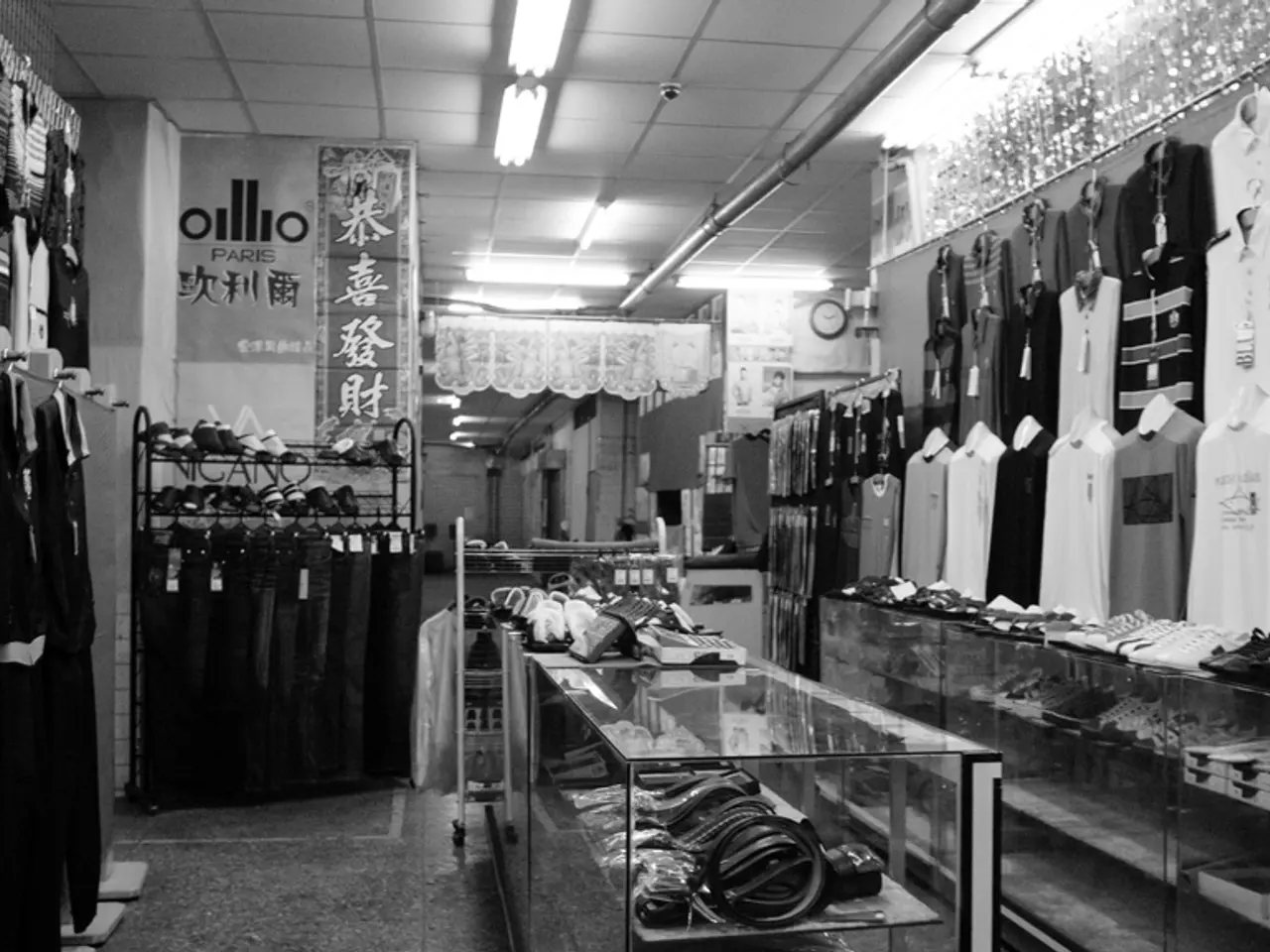Fast Fashion Influencing Now Outlawed in France
France Introduces Eco-Score System to Combat Ultra-Fast Fashion
France has taken a significant step towards sustainable fashion with the introduction of an eco-score system and a corresponding eco-tax. This system aims to penalize brands that produce unsustainable, ultra-fast fashion products, thereby incentivizing them to improve their environmental impact [1][3][5].
The eco-score rates products according to their environmental impact, though the precise scoring methodology is not yet detailed. The tax rate corresponds inversely to the eco-score, with lower scores attracting higher eco-penalties [3][5]. Brands with the lowest eco-scores could face taxes starting at €5 per item in 2025, rising to €10 or up to 50% of the product price by 2030 [1][3][5].
For major ultra-fast fashion brands like Shein and Temu, known for rapidly producing low-cost, disposable fashion, this system means they will face significant financial penalties per item sold if their products score poorly on the eco-score scale [1][3][5]. The taxation approach is designed to incentivize these companies to improve their sustainability, reduce waste, and slow product turnover to avoid high eco-tax costs.
The law also includes a ban on advertisements and influencer campaigns promoting overconsumption, aiming to reduce demand for ultra-fast fashion [2]. This ban is expected to have a significant impact on the marketing strategies of these brands, which heavily rely on influencer partnerships to drive sales.
The eco-score system will assess brands based on emissions, resource consumption, and product recyclability. The revenue from this tax will help fund France's sustainable fashion sector.
Across the English Channel, the UK has also shown commitment to combating unsustainable practices in the fashion industry. Brands found guilty of greenwashing in the UK fashion sector could face fines of up to 10% of their global annual turnover [4]. The UK has strengthened the Competition and Markets Authority (CMA) under the Digital Markets, Competition and Consumers (DMCC) Act, giving it greater power to target misleading environmental claims in the fashion sector [6].
The details of the UK's potential adoption of similar rules to France's ultra-fast fashion ban are yet to be disclosed. The EU's enforcement details for its fashion sustainability measures also remain unclear [7][8]. However, the EU is introducing sustainability measures for the fashion industry, including Digital Product Passports, a ban on destroying unsold stock, and stricter design requirements [8].
Waste Management reports that around 35% of primary microplastic pollution in the ocean stems from the fashion industry [9]. With these new measures, both France and the EU are taking a stand against the negative impacts of ultra-fast fashion on the environment.
[1] Le Monde (2022) France's ultra-fast fashion ban: What you need to know. [online] Available at: https://www.lemonde.fr/les-decodeurs/article/2022/03/29/france-interdit-la-mode-ultra-rapide-quelles-sont-les-mesures-prises-par-le-parlement_6116425_3234.html
[2] BBC News (2022) France bans ads for fast fashion brands. [online] Available at: https://www.bbc.co.uk/news/world-europe-60457403
[3] The Guardian (2022) France to tax fast fashion brands to encourage sustainability. [online] Available at: https://www.theguardian.com/fashion/2022/mar/29/france-to-tax-fast-fashion-brands-to-encourage-sustainability
[4] The Telegraph (2022) Greenwashing fines for fashion brands under new UK rules. [online] Available at: https://www.telegraph.co.uk/business/2022/03/29/greenwashing-fines-fashion-brands-new-uk-rules/
[5] The Financial Times (2022) France's fast fashion tax: How it works. [online] Available at: https://www.ft.com/content/c88a9c3f-6a76-43f2-b802-195199b8f2d0
[6] The Guardian (2021) UK government to give competition watchdog powers to tackle greenwashing. [online] Available at: https://www.theguardian.com/business/2021/dec/14/uk-government-to-give-competition-watchdog-powers-to-tackle-greenwashing
[7] The European Commission (2021) EU to tackle fashion's environmental footprint. [online] Available at: https://ec.europa.eu/info/news/eu-tackle-fashions-environmental-footprint-2021-dec-09_en
[8] The Guardian (2021) EU to ban destruction of unsold clothes and introduce stricter design rules. [online] Available at: https://www.theguardian.com/fashion/2021/dec/09/eu-to-ban-destruction-of-unsold-clothes-and-introduce-stricter-design-rules
[9] Waste Management (2021) Microplastics in the ocean. [online] Available at: https://www.waste-management.co.uk/sustainability/sustainability-topics/microplastics-in-the-ocean
- The eco-score system, introduced in France to combat ultra-fast fashion, rates products based on emissions, resource consumption, and product recyclability, potentially incentivizing fashion brands to prioritize sustainability.
- The UK has demonstrated a similar commitment to sustainable fashion by introducing penalties for brands guilty of greenwashing and strengthening the Competition and Markets Authority to address deceptive environmental claims.
- By banning advertisements and influencer campaigns promoting overconsumption, France aims to reduce demand for ultra-fast fashion, forcing brands to rethink their marketing strategies.
- Revenue generated from the eco-tax in France will be used to fund the development of the nation's sustainable fashion sector, encouraging growth in eco-friendly products.
- As both France and the UK implement stricter policies to combat environmental damage caused by the fashion industry, there is a growing movement within the EU to address the industry's enormous contribution to ocean microplastic pollution.







